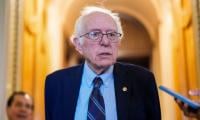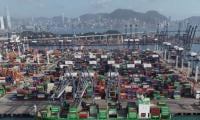Closure of industrial units warned on gas price hike
KARACHI: The Federation of Pakistan Chambers of Commerce and Industry (FPCCI) on Tuesday opposed the government’s decision to raise gas tariffs that it said would adversely affect the industrial sector reeling from monthslong lockdown.
FPCCI said the decision would hit exporters and value-added sector with increase in cost of energy and production. The government was demanded to withdraw the proposal of the increase in gas tariffs for consumers of Sui Southern Gas Company.
“Otherwise, the industry will face closing down of units which will ultimately result in unemployment and labor instability,” Anjum Nisar, president of FPCCI said in a statement.
The government was proposed to increase natural gas prices by up to 143 percent to recover Rs94 billion from consumers. The hike in prices will directly affect 9.4 million domestic consumers; 3.6 million of them fall in the lowest income slab and another 2.6 million in the second-lowest income group. Electricity will become expensive by 12 percent due to the increased prices of natural gas, according to a FPCCI’s estimate.
Nisar said the economy has already been affected by lockdown related to coronavirus and urban flooding during the last seven months. The industries particularly small and medium enterprises are striving to deal with the post-corona economic crunch and need to get support in one or another way.
“It seems cruel to overburden the industries with inflation,” he said. “An increase in natural gas costs will further weaken the economic environment which is already under threat on various fronts.”
The Economic Coordination Committee of the cabinet allowed raise in the gas prices by 10 percent for the lowest slab domestic consumers and by 143 percent for the highest slab of domestic consumers. It also approved increasing gas prices for commercial and industrial consumers from 30 to 57 percent that will increase prices of fertiliser, manufacturing units, electricity generation, cement, and compressed natural gas.
Up to 143 percent increase in gas prices is expected to follow around a 35 percent increase in electricity prices in the coming weeks. “This shows that the gas consumers will pay an additional Rs94 billion in the ongoing fiscal year to gas utilities,” Nisar said.
In September, the ministry of petroleum proposed a reduction in natural gas prices by up to 12.3 percent for captive power plants, 15.2 percent for captive plants in the textiles sector, 5.6 percent for textile processing units, 4.5 percent for gas industry and compressed natural gas stations, 3.9 percent for cement and 5.4 percent for power sector.
-
 Eric Dane’s Friends Initiate GoFundMe To 'support' His Two Daughters After His Death At 53
Eric Dane’s Friends Initiate GoFundMe To 'support' His Two Daughters After His Death At 53 -
 Internet Erupts After Candace Owens Claims Elon Musk And Sam Altman Are ‘not Human’
Internet Erupts After Candace Owens Claims Elon Musk And Sam Altman Are ‘not Human’ -
 Will Princess Beatrice, Eugenie Stay In Contact With Andrew? Source Speaks Out
Will Princess Beatrice, Eugenie Stay In Contact With Andrew? Source Speaks Out -
 ‘AI Revolution Is Coming Fast & US Has No Clue,’ Bernie Sanders Warns Of Speed Of Disruption
‘AI Revolution Is Coming Fast & US Has No Clue,’ Bernie Sanders Warns Of Speed Of Disruption -
 Hong Kong Touts Stability,unique Trade Advantages As Trump’s Global Tariff Sparks Market Volatility
Hong Kong Touts Stability,unique Trade Advantages As Trump’s Global Tariff Sparks Market Volatility -
 ‘Miracle On Ice’ Redux? US Men Chase First Olympic Hockey Gold In 46 Years Against Canada
‘Miracle On Ice’ Redux? US Men Chase First Olympic Hockey Gold In 46 Years Against Canada -
 Friedrich Merz Heads To China For High Stakes Talks In An Effort To Reset Strained Trade Relations
Friedrich Merz Heads To China For High Stakes Talks In An Effort To Reset Strained Trade Relations -
 Astronauts Face Life Threatening Risk On Boeing Starliner, NASA Says
Astronauts Face Life Threatening Risk On Boeing Starliner, NASA Says -
 Hailey Bieber Reveals How Having Ovarian Cysts Is 'never Fun'
Hailey Bieber Reveals How Having Ovarian Cysts Is 'never Fun' -
 Kayla Nicole Looks Back On Travis Kelce Split, Calls It ‘right Person, Wrong Time’
Kayla Nicole Looks Back On Travis Kelce Split, Calls It ‘right Person, Wrong Time’ -
 Prince William And Kate Middleton Extend Support Message After Curling Team Reaches Olympic Gold Final
Prince William And Kate Middleton Extend Support Message After Curling Team Reaches Olympic Gold Final -
 Nvidia CEO Praises Elon Musk, Calls Him An ‘extraordinary Engineer'
Nvidia CEO Praises Elon Musk, Calls Him An ‘extraordinary Engineer' -
 Shia LaBeouf's Mugshot Released After Mardi Gras Arrest On Battery Allegations In New Orleans
Shia LaBeouf's Mugshot Released After Mardi Gras Arrest On Battery Allegations In New Orleans -
 Timothee Chalamet Felt '17 Again' After Reunion With 'Interstellar' Director Christopher Nolan
Timothee Chalamet Felt '17 Again' After Reunion With 'Interstellar' Director Christopher Nolan -
 Conan O'Brien Speaks First Time After Rob Reiner's Killing
Conan O'Brien Speaks First Time After Rob Reiner's Killing -
 Giant Tortoise Reintroduced To Island After Almost 200 Years
Giant Tortoise Reintroduced To Island After Almost 200 Years



